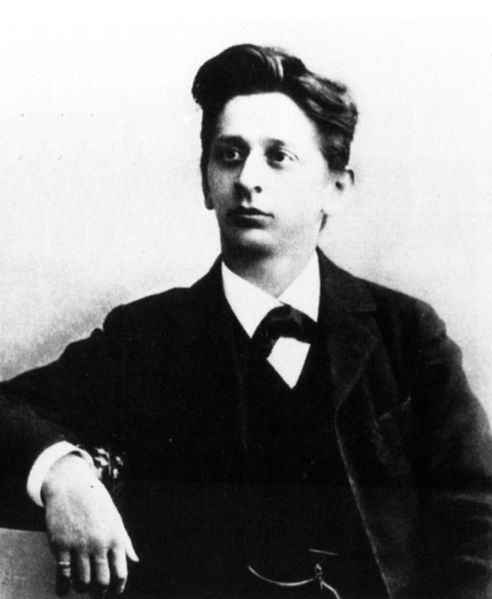Von Otter, BBCSO, Oramo, Barbican | reviews, news & interviews
Von Otter, BBCSO, Oramo, Barbican
Von Otter, BBCSO, Oramo, Barbican
Subtle heartbreak in Ravel and poleaxing Nielsen crown another concert stunner

Hair-raising guaranteed or your money back: that might have been a publicity gambit, had there been one, for Sakari Oramo’s latest journey with the BBC Symphony Orchestra around a Nielsen symphony. That he knows the ropes to scale the granite cliff face of the Danish composer’s Fourth, “Inextinguishable”, Symphony was not in doubt (he gave a shattering performance with his own City of Birmingham Symphony Orchestra at the 1999 Proms).
The programme started with a shock – for me, at any rate. Having earlier in the week taken students on a Nielsen/Sibelius course through Rattle’s CBSO recording of Sibelius’s The Oceanides – one of his best, in demonstration-worthy sound – the first bars last night jolted me into realizing that Oramo had chosen to espouse an earlier version. The second of three, in fact, that Sibelius feverishly composed before making his American conducting debut in the 1914. It lacks the familiar take’s clear but still organic shape, the irresistible bubbling up of two flutes to play dolphin-like on the ocean’s surface, the Tristanesque oboe theme and the crowning storm. Instead we get astonishing lower-string colourings and woodwind flurries that anticipate the supernatural world of Sibelius’s last tone-poem Tapiola (perfect darkness to the perfect lucidity of The Oceanides’ last revision, and due to launch the last concert in this series). So Oceanides Mark Two was very much worth hearing, especially in so ravishingly textured a performance.
 Close associate of Mahler and Schoenberg Alexander Zemlinsky (pictured right) knew his palette, too. His setting of six poems by symbolist flesh-creeper Maurice Maeterlinck much preoccupied with medievalised death are perhaps more pointillist than impressionistic. There was wonderful chamber-musical co-ordination between von Otter’s gleaming, word-rich mezzo and the oboe and celesta some way from her. If this is a voice one size too small for the occasional onrush of romantic orchestral sound – Wagnerian mezzo turned soprano Petra Lang with Jurowski back in 2010 was ideal in that respect – then it had its own virtues of blending as another instrument with the orchestra. The ballad-like refrains had a typical modesty, and von Otter’s vivid, tale-telling platform demeanour – poised but never inflexible – should be a model to gurning, straining performers like Magdalena Kožena, Lady Rattle.
Close associate of Mahler and Schoenberg Alexander Zemlinsky (pictured right) knew his palette, too. His setting of six poems by symbolist flesh-creeper Maurice Maeterlinck much preoccupied with medievalised death are perhaps more pointillist than impressionistic. There was wonderful chamber-musical co-ordination between von Otter’s gleaming, word-rich mezzo and the oboe and celesta some way from her. If this is a voice one size too small for the occasional onrush of romantic orchestral sound – Wagnerian mezzo turned soprano Petra Lang with Jurowski back in 2010 was ideal in that respect – then it had its own virtues of blending as another instrument with the orchestra. The ballad-like refrains had a typical modesty, and von Otter’s vivid, tale-telling platform demeanour – poised but never inflexible – should be a model to gurning, straining performers like Magdalena Kožena, Lady Rattle.
Tears threatened to well up here, but the Maeterlinckian relationship with the grim reaper in Zemlinsky’s hand is too strange and chameleonic to let any one emotion settle for long. The heartbreak came in Ravel’s utterly personal homage to Couperin harpsichord pieces, finally dedicated to friends killed in the First World War. Glitter of waves and bittersweet period evocation keep mourning at bay, but the BBCSO woodwind led by the peerless Richard Simpson, realizing to the full the suite’s oboe-concerto dimension, pierced the soul with their subtleties. Prélude and Rigaudon flashed along with an articulation that made light of their difficulties; it was the pauses for woodwind thought Oramo allowed in the Forlane and the very much emphasized juggernaut of grief that swells up unexpectedly at the heart of the Menuet which went deepest.
Not only the woodwind but also the strings are stripped bareIf ever there was perfection in a second half, as well as a showcase of an orchestra’s and conductor’s versatility of style, this was it. With the opening eruption of Nielsen’s Fourth we were on terra infirma, made whole only by the life-force of the great theme which drives the symphony to an ultimate victory much more compact and persuasive than the comparable ends of Beethoven’s Fifth and Mahler’s Third.
This time not only the woodwind – and the BBC Symphony’s are every inch the individual equal of their counterparts in the Berlin Philharmonic – but also the strings are stripped bare.The searing single, then double, lines of the slow movement “like an eagle on the wind”, according to the composer, had all the tone and definition you expect from one of the world’s great orchestras. It seemed hardly possible to surpass this intensity, but the duel of the two sets of timpani in the finale – Jeremy Cornes whiplash-dominant, Matthew Perry more thunderous – chipped on before Oramo crowned the work, the evening and his glorious Nielsen cycle so far with the most thrilling peroration in any symphony. Except, that is, the Fifth, so you’d better book tickets for the next fabulous instalment now.
rating
Share this article
The future of Arts Journalism
You can stop theartsdesk.com closing!
We urgently need financing to survive. Our fundraising drive has thus far raised £49,000 but we need to reach £100,000 or we will be forced to close. Please contribute here: https://gofund.me/c3f6033d
And if you can forward this information to anyone who might assist, we’d be grateful.

Subscribe to theartsdesk.com
Thank you for continuing to read our work on theartsdesk.com. For unlimited access to every article in its entirety, including our archive of more than 15,000 pieces, we're asking for £5 per month or £40 per year. We feel it's a very good deal, and hope you do too.
To take a subscription now simply click here.
And if you're looking for that extra gift for a friend or family member, why not treat them to a theartsdesk.com gift subscription?
more Classical music
 Cho, LSO, Pappano, Barbican review - finely-focused stormy weather
Chameleonic Seong-Jin Cho is a match for the fine-tuning of the LSO’s Chief Conductor
Cho, LSO, Pappano, Barbican review - finely-focused stormy weather
Chameleonic Seong-Jin Cho is a match for the fine-tuning of the LSO’s Chief Conductor
 Appl, Levickis, Wigmore Hall review - fun to the fore in cabaret and show songs
A relaxed evening of light-hearted fare, with the accordion offering unusual colours
Appl, Levickis, Wigmore Hall review - fun to the fore in cabaret and show songs
A relaxed evening of light-hearted fare, with the accordion offering unusual colours
 Lammermuir Festival 2025, Part 2 review - from the soaringly sublime to the zoologically ridiculous
Bigger than ever, and the quality remains astonishingly high
Lammermuir Festival 2025, Part 2 review - from the soaringly sublime to the zoologically ridiculous
Bigger than ever, and the quality remains astonishingly high
 BBC Proms: Ehnes, Sinfonia of London, Wilson review - aspects of love
Sensuous Ravel, and bittersweet Bernstein, on an amorous evening
BBC Proms: Ehnes, Sinfonia of London, Wilson review - aspects of love
Sensuous Ravel, and bittersweet Bernstein, on an amorous evening
 Presteigne Festival 2025 review - new music is centre stage in the Welsh Marches
Music by 30 living composers, with Eleanor Alberga topping the bill
Presteigne Festival 2025 review - new music is centre stage in the Welsh Marches
Music by 30 living composers, with Eleanor Alberga topping the bill
 Lammermuir Festival 2025 review - music with soul from the heart of East Lothian
Baroque splendour, and chamber-ensemble drama, amid history-haunted lands
Lammermuir Festival 2025 review - music with soul from the heart of East Lothian
Baroque splendour, and chamber-ensemble drama, amid history-haunted lands
 BBC Proms: Steinbacher, RPO, Petrenko / Sternath, BBCSO, Oramo review - double-bill mixed bag
Young pianist shines in Grieg but Bliss’s portentous cantata disappoints
BBC Proms: Steinbacher, RPO, Petrenko / Sternath, BBCSO, Oramo review - double-bill mixed bag
Young pianist shines in Grieg but Bliss’s portentous cantata disappoints
 theartsdesk at the Lahti Sibelius Festival - early epics by the Finnish master in context
Finnish heroes meet their Austro-German counterparts in breathtaking interpretations
theartsdesk at the Lahti Sibelius Festival - early epics by the Finnish master in context
Finnish heroes meet their Austro-German counterparts in breathtaking interpretations
 Classical CDs: Sleigh rides, pancakes and cigars
Two big boxes, plus new music for brass and a pair of clarinet concertos
Classical CDs: Sleigh rides, pancakes and cigars
Two big boxes, plus new music for brass and a pair of clarinet concertos
 Waley-Cohen, Manchester Camerata, Pether, Whitworth Art Gallery, Manchester review - premiere of no ordinary violin concerto
Images of maternal care inspired by Hepworth and played in a gallery setting
Waley-Cohen, Manchester Camerata, Pether, Whitworth Art Gallery, Manchester review - premiere of no ordinary violin concerto
Images of maternal care inspired by Hepworth and played in a gallery setting
 BBC Proms: Barruk, Norwegian Chamber Orchestra, Kuusisto review - vague incantations, precise laments
First-half mix of Sámi songs and string things falters, but Shostakovich scours the soul
BBC Proms: Barruk, Norwegian Chamber Orchestra, Kuusisto review - vague incantations, precise laments
First-half mix of Sámi songs and string things falters, but Shostakovich scours the soul
 BBC Proms: Alexander’s Feast, Irish Baroque Orchestra, Whelan review - rapturous Handel fills the space
Pure joy, with a touch of introspection, from a great ensemble and three superb soloists
BBC Proms: Alexander’s Feast, Irish Baroque Orchestra, Whelan review - rapturous Handel fills the space
Pure joy, with a touch of introspection, from a great ensemble and three superb soloists

Add comment